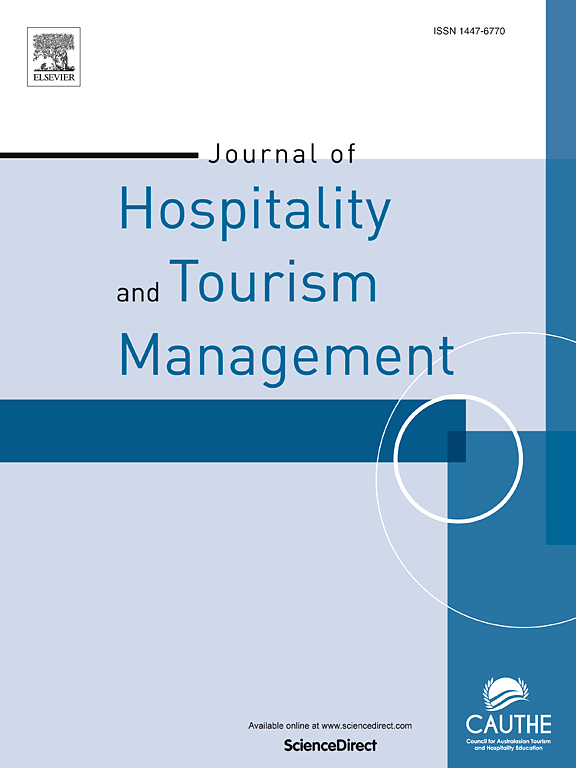How AI adoption in human resource management practices can enhance tourism employees' organizational commitment
IF 7.6
1区 管理学
Q1 HOSPITALITY, LEISURE, SPORT & TOURISM
引用次数: 0
Abstract
The advent of artificial intelligence (AI) technology is catalyzing significant transformations in employee work dynamics. However, there tend to be inconsistent findings regarding how and why organizational AI adoption in human resource management (HRM) practices can affect employees' commitment to their organizations. Drawing on the stereotype content model, this research furthers the comprehension of the interactions between servant leadership and AI adoption in HRM practices, which shape employees' organizational commitment through competence and warmth perceptions of their companies. The proposed model is tested using two independent studies: Study 1 - an experiment with the US tourism employees, and Study 2 - a cross-lagged three-wave field survey (multi-level and multi-source designs) and Study 3 - a time-lagged two-wave field survey with the Chinese leisure and hospitality employees. Results reveal that AI adoption in HRM practices will increase (decrease) employees' competence (warmth) perceptions of their companies, promoting (inhibiting) their organizational commitment, respectively. Meanwhile, servant leadership strengthens the competence pathway and buffers the warmth pathway. The research provides theoretical implications for AI management in the tourism and hospitality workplace and practical implications for enhancing tourism employees' organizational commitment.
求助全文
约1分钟内获得全文
求助全文
来源期刊
CiteScore
13.30
自引率
8.40%
发文量
177
审稿时长
45 days
期刊介绍:
Journal Name: Journal of Hospitality and Tourism Management
Affiliation: Official journal of CAUTHE (Council for Australasian Tourism and Hospitality Education Inc.)
Scope:
Broad range of topics including:
Tourism and travel management
Leisure and recreation studies
Emerging field of event management
Content:
Contains both theoretical and applied research papers
Encourages submission of results of collaborative research between academia and industry.

 求助内容:
求助内容: 应助结果提醒方式:
应助结果提醒方式:


